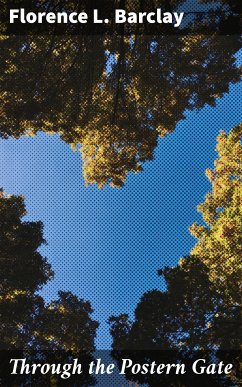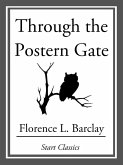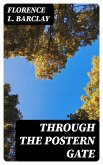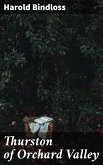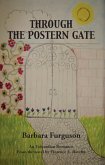In "Through the Postern Gate," Florence L. Barclay weaves a poignant tale of love, sacrifice, and spiritual awakening set against the backdrop of a quaint English village. The novel is marked by its lyrical prose and rich character development, skillfully exploring themes of faith, redemption, and the transcendent power of love. Barclay's narrative style is reminiscent of the early 20th-century romantic fiction, wherein she masterfully interlaces a vivid sense of place with deep emotional resonance, inviting readers to ponder their own beliefs and connections to the divine. Florence L. Barclay, a prominent writer in the early 1900s, drew inspiration from her own experiences with spirituality and the complexities of human relationships. As a successful novelist and poet, she became known for her ability to blend romantic plots with profound moral inquiries. Barclay's life, marked by personal loss and the transformative power of love, deeply influenced her writing, allowing her to create characters that are both relatable and aspirational. Readers seeking a compelling exploration of faith and love will find "Through the Postern Gate" a treasure. It engages both the heart and the mind, inviting contemplation and reflection long after the final pages are turned. Barclay's unique blend of romance and spirituality offers an enriching experience for anyone eager to delve into the depths of human connection.
Dieser Download kann aus rechtlichen Gründen nur mit Rechnungsadresse in A, B, BG, CY, CZ, D, DK, EW, E, FIN, F, GR, H, IRL, I, LT, L, LR, M, NL, PL, P, R, S, SLO, SK ausgeliefert werden.
Hinweis: Dieser Artikel kann nur an eine deutsche Lieferadresse ausgeliefert werden.

